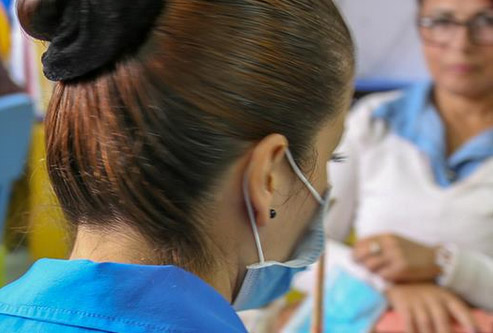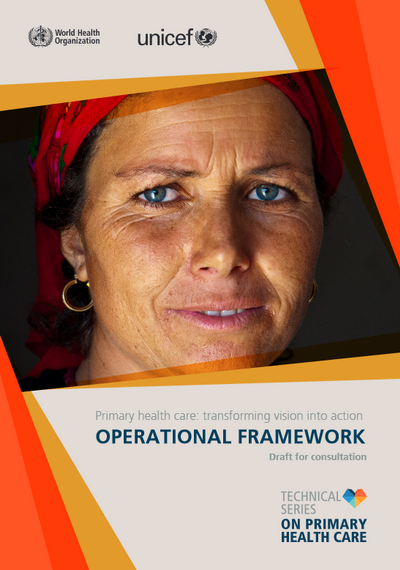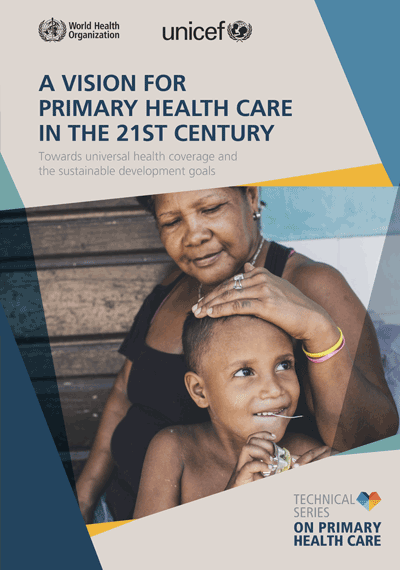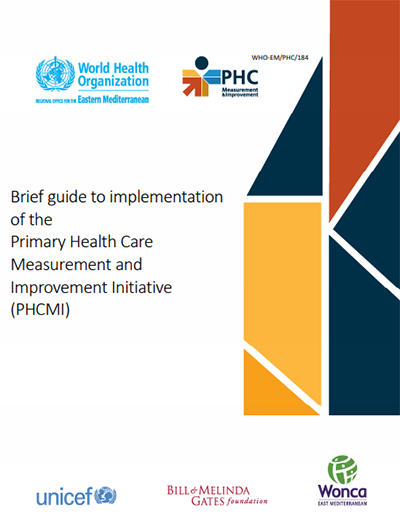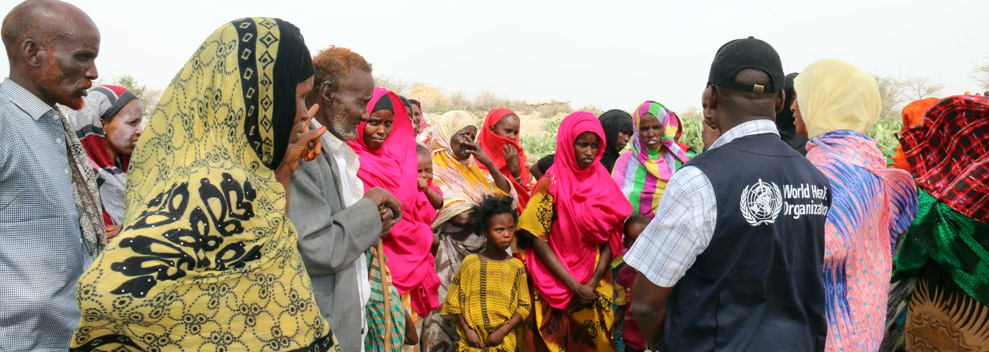
What is PHC?
Primary health care (PHC) addresses the majority of a person’s health needs throughout their lifetime. This includes physical, mental and social well-being and it is people-centred rather than disease-centred. PHC is a whole-of-society approach that includes health promotion, disease prevention, treatment, rehabilitation and palliative care.
A primary health care approach includes three components:
- meeting people’s health needs throughout their lives;
- addressing the broader determinants of health through multisectoral policy and action; and
- empowering individuals, families and communities to take charge of their own health.
By providing care in the community as well as care through the community, PHC addresses not only individual and family health needs, but also the broader issue of public health and the needs of defined populations.
The principles of PHC were first outlined in the Declaration of Alma-Ata in 1978, a seminal milestone in global health. Forty years later, global leaders ratified the Declaration of Astana at the Global Conference on Primary Health Care which took place in Astana, Kazakhstan in October 2018.
PHC, because it is about how best to provide health care and services to everyone, everywhere, is the most efficient and effective way to achieve health for all.
Related topics
Technical documents
PHCMI Initiative
About PHCMI
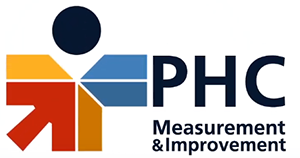 The Global Conference on Primary Health Care brought together 2050 delegates from 147 countries. Its aim was to commemorate the 40th anniversary of the Alma-Ata Declaration and renew political commitment to strengthening primary health care (PHC) as the foundation of universal health coverage (UHC) and essential to progress towards the Sustainable Development Goals. It explored the whole-of-government approach to advancing primary health care.
The Global Conference on Primary Health Care brought together 2050 delegates from 147 countries. Its aim was to commemorate the 40th anniversary of the Alma-Ata Declaration and renew political commitment to strengthening primary health care (PHC) as the foundation of universal health coverage (UHC) and essential to progress towards the Sustainable Development Goals. It explored the whole-of-government approach to advancing primary health care.
The Declaration of Astana was unanimously endorsed by Member States and made pledges in four key areas:
- make bold political choices for health across all sectors
- build sustainable primary health care
- empower individuals and communities
- align stakeholder support to national policies, strategies and plans
To transform these commitments into action, the WHO Regional Office for the Eastern Mediterranean launched the Primary Health Care Measurement and Improvement Initiative (PHCMI), supported by the Bill & Melinda Gates Foundation, UNICEF and the World Organization of Family Doctors (WONCA), in April 2019.
PHCMI is a joint initiative between the Regional Office’s Universal Health Coverage/Health Systems Department and Science, Information and Dissemination Department.
The objectives of PHCMI are to:
- develop a common language/framework through which to explain the process of PHC strengthening;
- identify and aggregate data that assess key aspects of PHC;
- create tools, such as PHC Country Profiles and Vital Signs profiles, that policy-makers, development partners and advocates can use to better assess and improve PHC services;
- highlight progress, and identify key challenges to improving PHC performance;
- develop PHC improvement plans and strategies as part of routine policy, planning, management, supervision and service delivery processes.
PHCMI is built on the global Primary Health Care Performance Initiative (PHCPI), the PHC operational framework, existing regional efforts to strengthen PHC services, PHC quality indicators and the WHO regional health system profile.
PHCMI aims to build national capacity to enable countries to undertake assessment-based improvements to PHC services and promote greater adoption of the people-based family practice approach to facilitate more equitable and efficient access to essential health services for individuals, especially the most vulnerable, residing in a catchment population of a primary health care facility.
The PHCMI initiative strives to, first, assess the current status of PHC services within countries and use that assessment to inform strategies to improve PHC. The assessment process comprises three phases: 1) Preparation; 2) Measurement and 3) Improvement.
In the Region, 20 countries have begun undertaking implementation of the assessment and completing the PHCMI country profiles.
Primary Health care Measurement and Improvement (PHCMI) Initiative
PHCMI country profiles
Afghanistan

Egypt
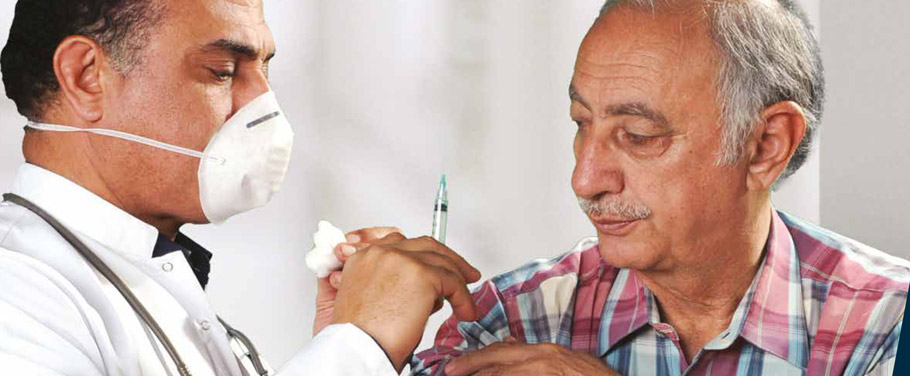
Egypt’s 2030 Health Vision identifies several goals to improve quality of life – with special attention paid to achieving equitable access to essential health services. National policies are moving towards measurable PHC outcomes to improve population health and reduce inequities in health.
PHC Country Profile
Vital Signs Profile
Iraq

Islamic Republic of Iran
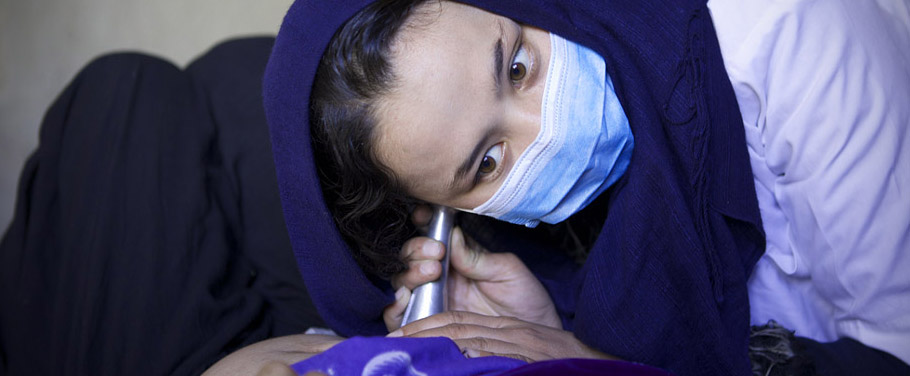
In recent years, there has been a drive to expand PHC service packages for improved health outcomes in Islamic Republic of Iran. Following development of the country’s Health Transformation Plan, there has been a focus on the family practice programme and the Iranian National sixth 5-year development plan.
Jordan
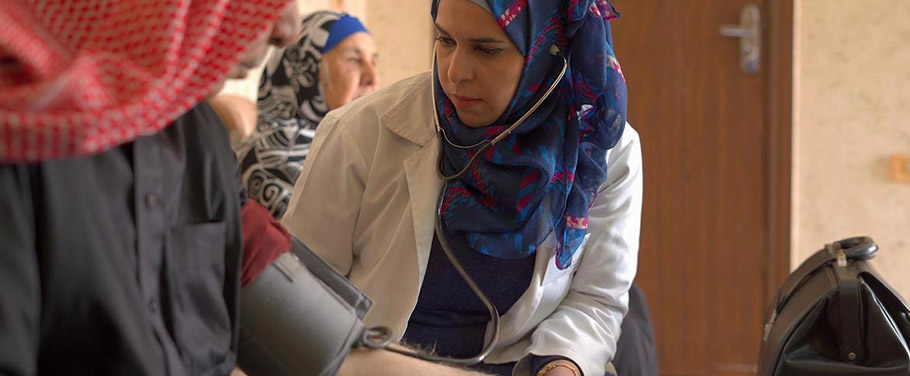
As part of Jordan’s National Strategy for the Health Sector 2016-2020, improving the quality of, and access to, PHC services was identified as a main objective achievable through the development of integrated and quality PHC services.
Access Jordan’s PHC Country Profile
Access Jordan’s Vital Signs Profile
Libya
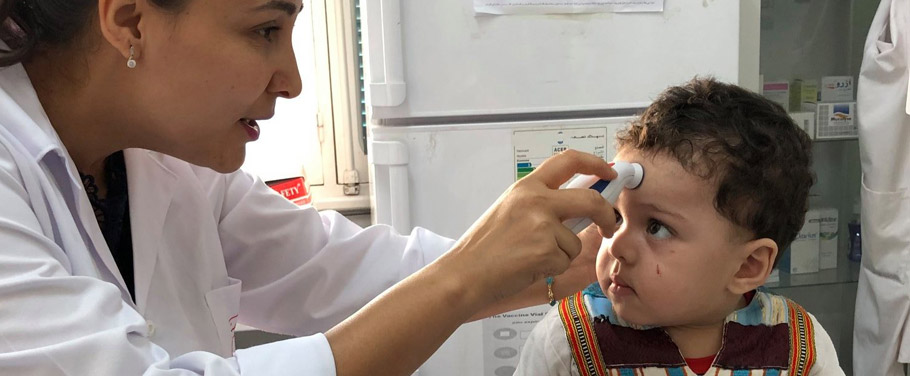
In 2019, a prime objective for Libya’s heath sector was to begin a process of recovery of the public health services system, which has been largely disrupted due to conflict. The response priorities included identifying gaps and scaling up of PHC services and improving quality of services in all crises-affected areas.
Morocco
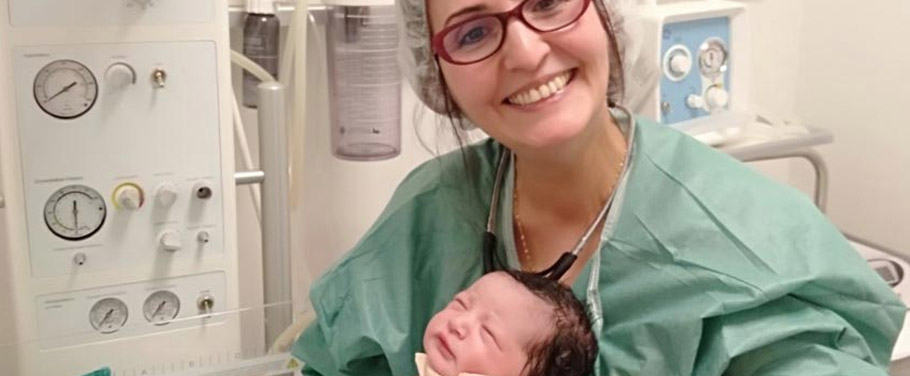
Morocco’s 2017-2021 health reform aims to implement projects and programmes to improve positive health outcomes by reforming health care provision to improve access to health care services.
Pakistan
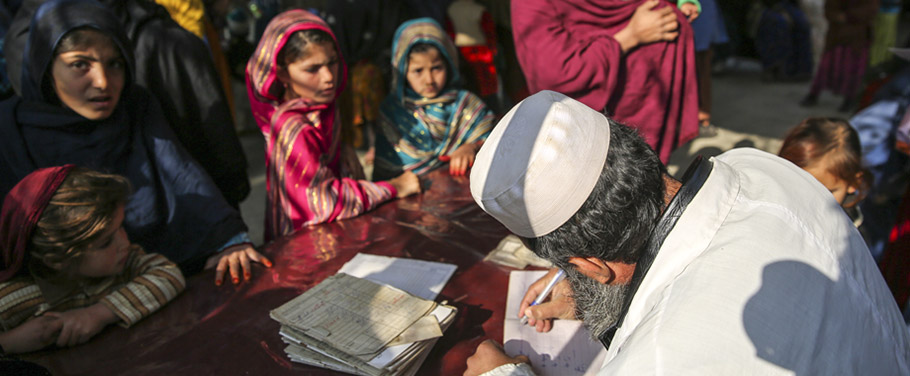
Pakistan’s National Health Vision 2016-2025 outlines improvements in coverage and functionality of primary health care (PHC) services as one of the strategic priorities for the federal and provincial governments. Following the national consensus, provincial and Islamabad Capital Territory health strategies have prioritized PHC reforms.
Access Pakistan’s PHC Country Profile
Access Pakistan’s Vital Signs Profile
Oman

Qatar

Resources
Online training
The WHO Regional Office for the Eastern Mediterranean, World Organization of Family Doctors (WONCA) and United Nations partners, including the Joint United Nations Programme on HIV/AIDS (UNAIDS), United Nations Population Fund (UNFPA), United Nations High Commission for Refugees (UNHCR) and United Nations Children's Fund (UNICEF) developed a guidance document for primary health care policy-makers and providers on the role of primary health care during the COVID-19 pandemic.
WHO, WONCA and United Nations agencies, as part of the regional workplan for implementation of the SDG 3 "Global Action Plan for Healthy Lives and Well-being for All", used the guidance to develop an online training course to help ensure that PHC was fully integrated into every country’s response to COVID-19 pandemic in WHO's Eastern Mediterranean Region.
The training seeks to support primary health care personnel to maintain essential services and assist in controlling the pandemic as frontline health professionals, while ensuring their own protection through effective infection prevention and control mechanisms and maintaining the community’s trust in the health system.
The course identifies 4 main functions of primary health care in relation to COVID-19:
- maintaining essential health services;
- preventing COVID-19 through supporting effective public health measures;
- diagnosing COVID-19 cases and ensuring adequate referral; and
- managing mild and moderate COVID-19 cases.

Development partners strongly encourage primary care physicians, working in the public and private sectors in the Region, to undertake this training.
Objectives
The programme has been designed to:
- highlight the important role of PHC in maintaining the essential health services;
- inform PHC team with WHO most updated policies and guidelines related to COVID-19;
- identify the role and responsibilities of PHC team in prevention and control of COVID-19;
- present and discuss WHO health workforce infection control procedures recommended for COVID-19 prevention and control.
Features
- Online interactive multimedia and mobile application-based training, based on the latest WHO technical guidance on COVID-19.
- Trainees will receive certificates of completion from WHO, accredited for 15 hours under the category 1 credit system of the American Association of Continuing Medical Education (AACME) and endorsed by the Arab Board of Health Specializations.
- Comprises 5 modules lasting an estimated total of 15 contact hours.
- Content is designed to be periodically updated every 8 weeks, to include the latest manuals, guidelines and evidence-based information. The second version will be available on 7 November 2020.
- Arabic, Farsi, and French versions are available.
WHO Regional Director introducing online training on the role of PHC in COVID-19
Diploma in Family Medicine
Introduction
Many countries around the world and especially countries in the Region have a severe shortage of qualified trained family doctors, essential to achieve the goal of universal health coverage. In many countries, the specialty of family medicine has not been developed so the first point of contact for patients remains either untrained general practitioners, who have neither training nor experience in family medicine, or secondary care doctors, with internists, pediatricians and obstetrician-gynaecologists providing care for their respective groups. Yet most physicians working as family doctors are eager to pursue postgraduate training, gain due accreditation and ultimately raise the contribution of family medicine to national health care systems.
Regional Professional Diploma in Family Medicine
To reach the target of 3 family physicians per 10 000 population by 2030, WHO in collaboration with UNICEF, American University in Beirut and the World Organization of Family Doctors (WONCA) developed the Regional Professional Diploma in Family Medicine as a bridging programme, which can be defined as a transitional period when a general practitioner will be introduced to family medicine and gain improved knowledge and skills in service delivery.
Students are often full-time employed physicians, and many cannot gain training placements in training centres so they receive on-the-job training in various hospital posts. The Regional Professional Diploma in Family Medicine is flexible, offering part-time and full-time options and enrolment while working/training in primary and secondary health care.
To build capacity of trainers, the WHO Regional Office organizes training of trainers workshops to introduce the Diploma to family medicine departments and provides training on the use of the online component of the course. It encourages family medicine departments to customize the Diploma programme to meet the needs of populations in respective countries.
Teaching modality
The programme uses a blended format of online (self-directed, instructions, discussions), face-to-face (teaching, discussions) training sessions with both academic and clinical supervisory support and on-the-job training.
Moodle is used as the learning management system for the online part of the training.

Duration and credit hours
The duration of the course is 12 months (900 hours/30 European Credit Transfer System (ECTS)/ around 16 American credits) divided into 4 terms. The programme comprises 8 "blocks" each spanning a 5-week period.
Curriculum
The curriculum was mapped according to the WONCA defined 6 main competencies that a general practitioner/family physician has to master. These competencies include: primary care management, person-centred care, specific problem-solving skills, comprehensive approach, community-orientation and holistic approach.
These competencies cover the main characteristics of the discipline of general practice/family medicine:
- Acting as the first point of contact in the health care system, dealing with all health problems of the individuals regardless of their age and sex.
- Coordinating care with other specialists, professionals and health care resources in an efficient way, taking an advocacy role for the patient when needed.
- Developing a person-centred approach that is oriented to the individual within the context of his/her family and community.
- Promoting patient empowerment.
- Providing longitudinal continuity of care depending on the needs of the patient.
- Applying a specific decision-making process as determined by the prevalence and incidence of the illness in the community.
- Managing both acute and chronic health problems of individual patients.
- Managing illnesses presenting in an undifferentiated way, namely at an early stage of their development.
- Promoting health and well-being through appropriate and effective interventions.
- Assuming specific responsibility for the health of the community.
- Dealing with health problems in their different physical, psychological, social and cultural dimensions.
Eligible institutes
Institutes that eligible to teach the Regional Professional Diploma in Family Medicine:
- are recognized in the country by the supreme council of universities, ministry of health or medical syndicates as a medical postgraduate training body offering professional or academic certificates (Diploma, Masters, Fellowships, M.D);
- must have a family medicine department or scientific board;
- must have family medicine specialty training among its programmes offered;
- agree to develop, in collaboration with the WHO Regional Office, a clear concept note, outline plan and budget plan;
- have a long-term vision and plan to adapt and adopt the Regional Professional Diploma in Family Medicine for multiple cohorts.
Eligible trainers
An eligible trainer:
- is a member of an academic institute/training body in the implementing country;
- attended a WHO training of trainers workshop;
- agrees with the terms of reference which include:
supervising the progress of each trainee;
chatting online with trainees once a week;
conducting on-the-job training;
conducting live review sessions;
correcting assignments and providing feedback to trainees.
Eligible trainees
Students eligible for the diploma must:
- be a licensed practising physician;
- sit for an interview with an appointed committee;
- be ready to put an average of 15 hours per week into studying for the Diploma;
- allocate time during clinic hours (live review sessions, on-the-job training);
- be fluent in English;
- have internet access from work and home.




